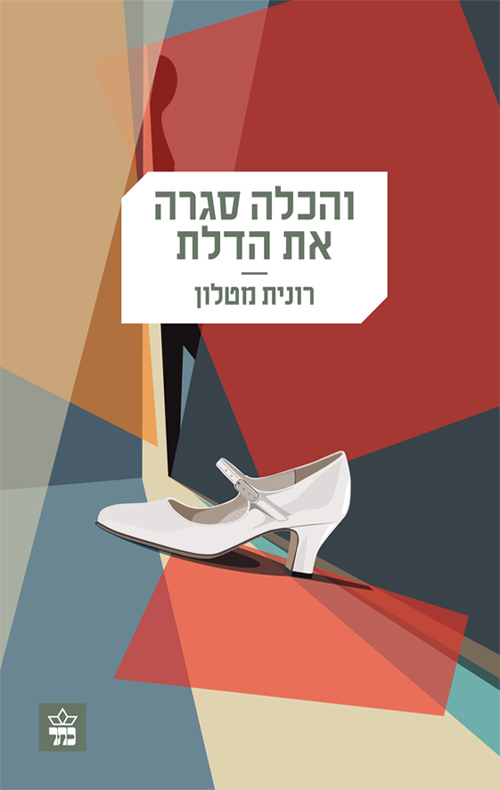
And the Bride Closed the Door
On the day of her wedding, Margie, a young bride, shuts herself up in her mother’s bedroom and declares that she won’t get married. Her family gathers at the locked door, not knowing what to do. Her mother, Nadia, has lost a younger daughter in circumstances that are not clear. Her grandmother, who is hard of hearing, seems to understand her better than anyone. Ilan, a cousin who likes to wear women’s clothes and jewelry, clings to his grandmother like a little boy. And then there is Matti, the despairing groom, trying to decipher his beloved’s silence and understand why she refuses to marry him. The problem is not solved by the arrival of the groom’s parents and a psychologist who specializes in brides that change their mind.
The harder they all try to reach defiant Margie, including bringing a high ladder belonging to the Palestinian Authority Power Company, the more Matti empathizes with her, and the more convinced he is that her refusal should be respected. But does that mean that she doesn’t love him? Perhaps she is actually rejecting social and family demands, a sort of female rebellion against the role that the world expects her to play.
A thought-provoking and enjoyable novella that will stay with the reader long after s/he has finished reading it.


- Languages
-
Dutch, English, French, German, Italian, Spanish
-
Italian
Florence, Giuntina, forthcoming -
French
Arles, Actes Sud, Forthcoming -
German
Munich, Luchterhand, 2018 -
Spanish
Barcelona, Minuscula, Forthcoming -
English
New York, New Vessel Press, Forthcoming -
Dutch
Amsterdam, Ambo/Anthos, 2019
-
| Title | And the Bride Closed the Door |
|---|---|
| Writer's Last Name | Matalon |
| Writer's First Name | Ronit |
| Genre | Fiction |
| Publisher (Hebrew) | Keter |
| No. Pages | 130pp. |
| Book title - Hebrew (phonetic) | Ve-Ha-Kala Sagra Et Ha-Delet |
-
“A remarkable book. The deep inner structures of Israeli society, the existential tensions of being Israeli, and questions pertaining to the definition of individual identity are dealt with brilliantly and light-handedly”
-
“A spellbinding novella … The action is replete with human gestures and behaviors that are delicately drawn … A fable on the Israeli condition … Matalon is one of today’s best Israeli authors, one of the original, intriguing and unique voices now active here. Her writing – the themes, the characters, the way they are shaped – is distinct and unique. ”
-
“A great story … Ronit Matalon’s prose seems to flow… Elaborate, masterful narrative by one of the finest Hebrew writers, which does not forgo a rational structure, but is totally under her control within the volatile and vivid emotional current.”
-
“ A novella written with impressive literary skill … Martalon’s prose is elegant, effortless, without a trace of forced artificiality. ”
